Let's just start by stating the obvious: Victoria Caña is just, like, really cool. Actually, we're going to risk overstepping here and say: she's the best friend you've always wanted. You know, the one who gives sage career advice and in the next breath gives you her best wellness or interior decorating tips, then introduces you to the next big trend or bestselling book? Yeah, that friend.
As a Business Analyst for Deloitte in their Human Capital Strategy department, Victoria's days are full of what she calls "work, work, work, work, work." But—and there's a big but here—she actively brings perspective and balance to that work. The result is a colorful, dynamic life and career. Whether it's dining alone at fancy restaurants or fitting in a yoga or cycling session while traveling or speaking in front of crowds of thousands—yes, thousands—of people, Victoria knows her limits, how to push past them, and occasionally, when to just let go and cry a little. What can't she do? Actually, jiu jitsu. But more on that later.
Read on to learn more about what "human capital strategy" actually means (we didn't know either) and all her favorite tips on work travel—the one about OpenTable points is gamechanging.
Her Starting Point
You completed five internships in college. What motivated you to seek out so much experience so early in life? How do you think it prepared you for the postgrad job hunt?
As a student who had grown up in the relatively empty and uneventful outskirts of Las Vegas, I was eager to seize every opportunity I could get my hands on when I went to NYU. It just so happened that internships turned out to be the most efficient opportunity for me to learn new skills while also making money. If I hadn’t spent so much time exploring my passions and getting valuable industry experience in college, I probably would not have gotten a great job after graduation, let alone know what I wanted to do for a career.
Through internships, you tried out many different roles and industries. How has the diversity of your experiences helped you in your job today?
I’ve had an internship in everything from social media research at a major ad agency to digital media at a startup to account management in the video department of an Internet company. Following my curiosity and investigating my passions led me to have a diverse, extensive media and communications background. These habits also allowed me to become a quick study and problem solver in any situation I’m thrown in. My varied experiences have worked in my favor every day as a consultant, a career in which I am constantly faced with new projects, problems, and people on a daily basis.
You interned at AOL for a full year, which is longer than your standard summer job. Can you speak more about that experience? What were the most important lessons you learned? What were some of the most memorable aspects of your time there?
It’s very difficult to intern and take 18 credits simultaneously, which I had to do to graduate early. But AOL had that magical combination of awesome managers, ongoing learning opportunities, great pay, convenient location (it was right next to NYU!), and endless other perks to keep me invested and happy for a year. When I was at AOL, the company also owned brands like Huffington Post, Tech Crunch, StyleMePretty, and Moviefone. That meant as an intern, I would use the same bathroom as Arianna Huffington and had the chance to see tons of celebrities like Mark Ruffalo, Anne Hathaway, Alan Rickman, and Shay Mitchell when they were taping in the office. The fact that it was a one-year internship allowed me to grow and develop on a scale that’s not usually possible during a short-term internship. I was able to make strong, long-term relationships with my teammates, piece together the high-level business problems of my industry, and ultimately become an integral part of the department I was working in.
You studied Media, Culture, and Communication at New York University. Can you tell us a little more about your major? What were the most valuable skills you learned, and how do you put them in practice today? Is there anything you wished you had learned in school, but didn’t?
As cliché as this sounds, studying Media, Culture, and Communication (MCC) in college allowed me to develop my analytical and critical thinking skills, which is not something that all majors and colleges teach students, unfortunately. When I was in high school, the majority of my classes only taught me to memorize textbooks and what other people thought. When I was in college, the very first thing I was taught to do was think for myself. What did I think [about] a specific situation? What was my perception of the text or a current event? What solutions could I bring to the table?
Additionally, studying MCC allowed me to understand the deeper meaning behind media technologies and systems, which pervade our everyday lives. For example, while the average person would look at an advertisement at the surface level, I would probably think about the sociological, political, and cultural aspects and implications of that advertisement. I do wish that I learned more “hard” skills in MCC, like how to write a pitch or develop a communications plan, but fortunately those things can be learned on the job.

Her Big Break
After graduation, you joined Deloitte as a Business Analyst in their Human Capital Strategy practice. What brought you to that position? For our readers who don’t know, what do Human Capital consultants do?
To be honest, I had no idea what human capital consulting was when I was in college. I was originally determined to work in digital marketing when a colleague of mine convinced me to attend a Deloitte event on campus. I still remember how out of place I felt at that event. Everyone else was a serious business student dressed in a pressed black suit. Meanwhile, I was a quirky communications major wearing snakeskin flats and shimmery eyeshadow. Human capital consulting is all about helping clients address their biggest problems from a people-driven perspective. Some common solutions include designing an organizational structure that aligns [with] business growth objectives, driving technology-enabled HR processes and cost efficiencies, and developing culture initiatives to improve employee engagement.
Can you walk us through your typical schedule, from when you wake up to when you leave the office?
6am - Wake up, put on my makeup (or at least my eyebrows if it’s one of those days), grab my suitcase, and head to the airport.
8am - Grab a chicken noodle soup from Au Bon Pain and hop on a flight to my client site. So far, I’ve been to places like Chicago, Dallas, Austin, and Providence.
10am - Work, work, work, work, work (sometimes while listening to the Hamilton album or Lorde).
7pm - Exercise at a cycling, yoga, or boxing place. One time I accidentally went to a Jiu Jitsu class and had to wrestle the instructor!
8pm - Eat a fancy dinner alone or with coworkers. I try to stack up my OpenTable points when I’m traveling for work since all of my food is free.
9pm - Call my boyfriend and play videogames. Sometimes, I blog or read a book.
11pm - Sleep in my hotel room. I like getting double beds because I can use one to lay out all my clothes on.
Somewhere in that schedule, you’ve got a side hustle, a blog called Victoriously Yours. How do you balance a demanding full-time job and blogging?
For me, the secret is planning. In addition to laying out my days on my Outlook calendar, I use Asana (a super awesome project management tool) to manage the different aspects of my life and hold myself accountable to tasks. When something is written down and assigned a due date, I feel more compelled to do it. I also try not to be too hard on myself if I am not able to blog according to a strict schedule. I originally started my blog for fun, and if I force myself to write to my own detriment (e.g., exhaustion), then it’s not adding any value to my life.
You also do speaking engagements (with crowds up to 15,000!) and workshops that cover personal branding, effective communication, and leadership. What do you teach? How does your approach on your blog differ from that of your lectures and conference speeches?
My public speaking approach is to teach important lessons I’ve learned in my career through a combination of storytelling and practical, actionable tips. While the major themes I discuss are largely the same, the audiences for my blog, workshops, and conferences often vary. This means I have to tailor my tone and storytelling approach to the audience I’m communicating with.

Her Perspective
Studies show that people are more scared of speaking in public than dying. Do you have any public speaking tips you can share? Where did you learn how to face large crowds?
I started developing my public speaking skills when I was in high school. Having been elected to several school leadership positions, I had the opportunity to speak in front of large crowds frequently at a young age. I was also elected to serve as an executive officer for a 200,000+ student organization called DECA (Distributive Education Club of America). The role included extensive leadership and public speaking coaching from TRI Leadership.
My first public speaking tip is to not be afraid of feeling afraid. I’ve spoken on stage at least 100 hundred times and I still get nervous—palms sweaty, legs shaking nervous. But rather than give into fear, it’s critical to transform your nervous energy into excitement to tell your important story. Feel the fear and leverage it to be authentic on stage. My second tip is that it’s okay to pause. It might feel like forever in your mind, but to the audience it’s only a few seconds. If you need to take a few seconds to collect yourself, do it.
When you’re working long hours and flying between sites, finding time for yourself can be difficult. What does work-life balance look like for you? What are your favorite ways to unwind?
I am a wellness advocate, so I make it a priority to take care [of] myself. I sleep a lot, exercise often, and get facials, massages, and manicures monthly. I walk around the neighborhood when it’s sunny. I buy new dresses when there are great sales. I decorate my home when I see cute decor at Target. I re-read The Life Changing Magic of Tidying Up and figure out what items no longer spark joy so I can donate them and create more space in my life. I brainstorm ways to achieve my dreams and help my friends achieve theirs.
We all have those moments at work where we just can’t even. How do you cope with stress?
Oh yeah. All the time. In the spirit of transparency and authenticity, I will let you know that I’ve cried at work. In bathroom stalls, on my desk, on my boyfriend’s shoulder. I’ve had nervous breakdowns, acne from stress, and I was once so busy that I could barely eat even a piece of toast a day. It’s easy to think that working women on Instagram have it together 24/7, but that is definitely not true. I drop the ball all the time, but I learned early on that success isn’t about being perfect. It’s about fulfilling your dreams and being your happy, authentic self.
When I get overwhelmed, rather than breaking down and giving up, I try to focus on creating a game plan. I ask myself questions like, “Is this a priority?”, “Who can I delegate this to?”, “What are the downstream impacts if I do or do not do this today?”, “How can I fix this?” A lot of things in life are out of our control, so I like to focus on what I can control to make the best of sticky situations.
You’ve got a travel-intensive job, a blog, workshops, and speaking engagements...and 24 hours in a day. How do you prioritize? And how do you know when you’ve taken on too much?
In consulting, you quickly learn to adapt traditional project management techniques to your own life. For example, when you make a project plan, you usually list all the tasks that need to be done, scope out the work, determine timelines and dependencies, and identify what is critical vs. noncritical. I take a similar to approach to my life, while leaving enough wiggle room to be spontaneous and sleep more if I need to. If I ever feel unhappy or exhausted, I know that I’ve definitely taken on too much in my life and I need to start saying no to things that aren’t bringing me joy.
You May Also Like
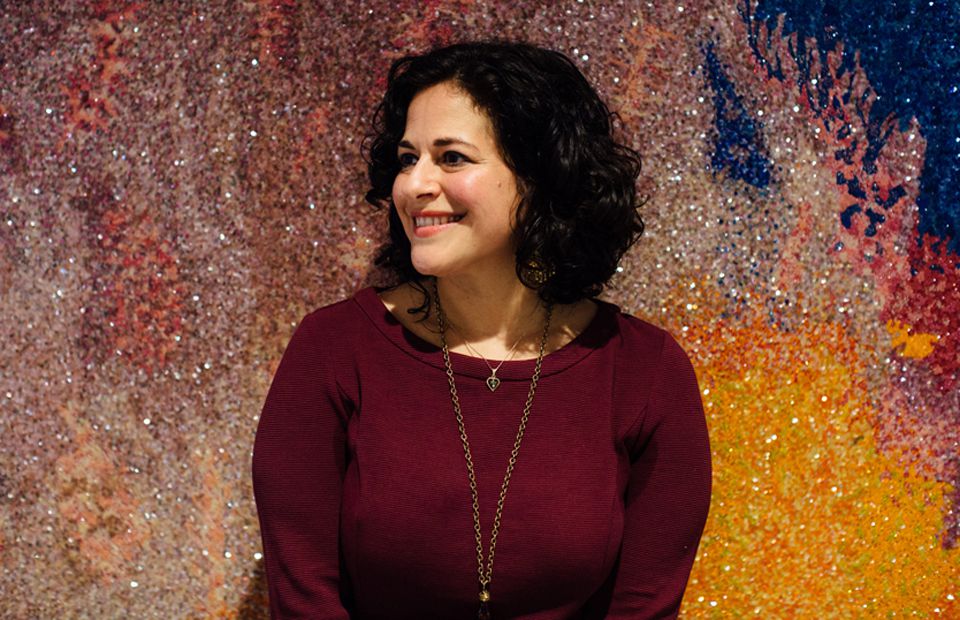
Consumer Goods
Our New Dream Job? Vice President of Social Consciousness & Innovation
"The truth is, having a more responsible supply chain or more responsible business is made up of lots of small actions. And one thing that I really love about my work is that nothing is black and white. It's all gray space."
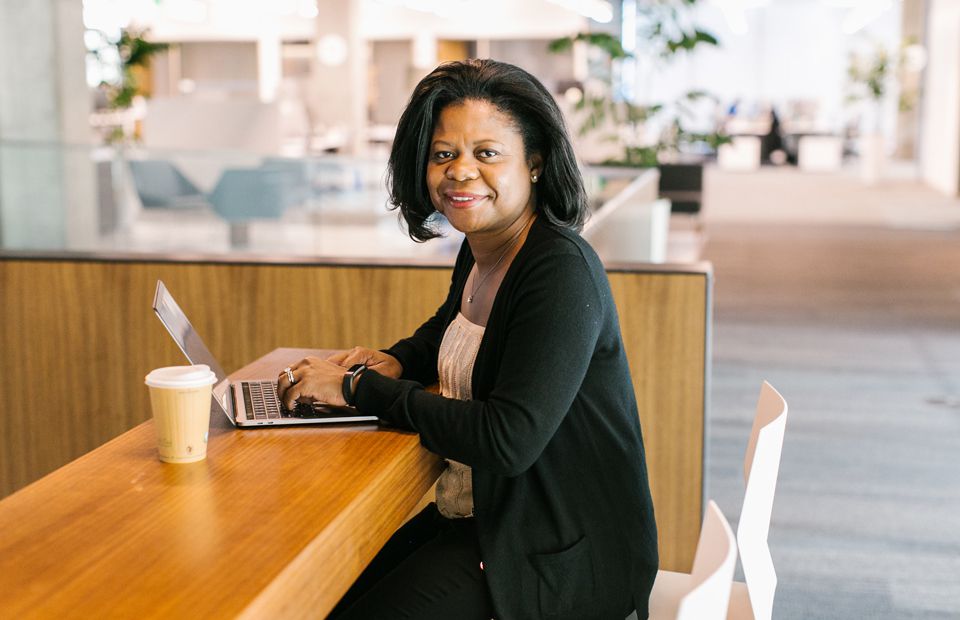
Consumer Services
An Executive at Intuit on How to 'Send the Elevator Back Down'
"What I often tell engineers—especially women engineers—is that it’s good to be excellent, but you’ve got to make sure it’s not a well-guarded secret."
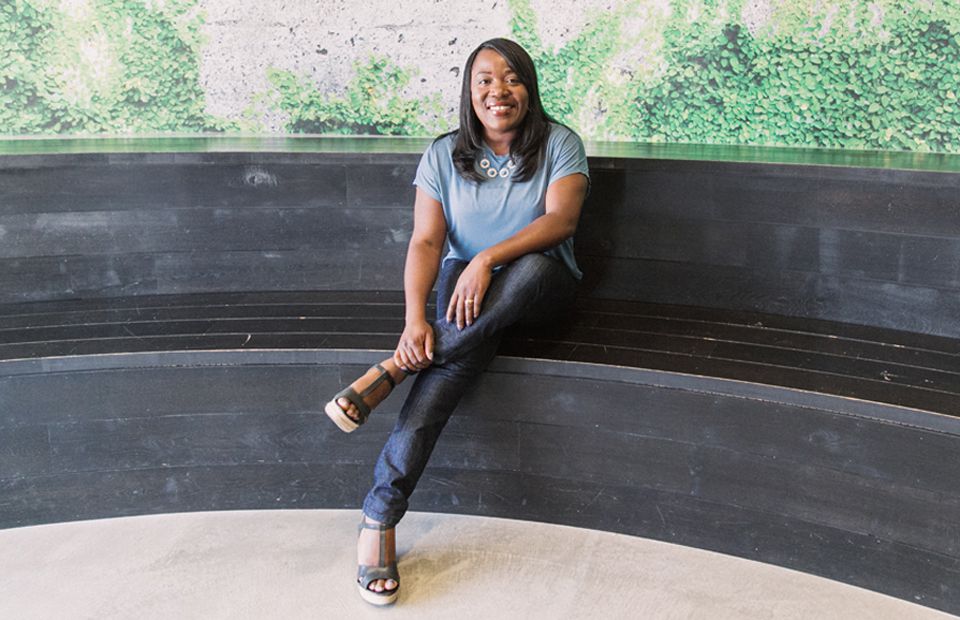
Consumer Services, Technology
A Top Lawyer Talks Leadership, Transparency, and a Music Empire's Goals for Diversity
As Chief Counsel at Pandora, Adelmise Warner has a few thoughts on leaning in.

Consumer Goods
Rising Tide Society's Founder on Why Not Everyone's Cut Out for Entrepreneurship
Natalie Franke on creative entrepreneurship and her journey with Rising Tide Society
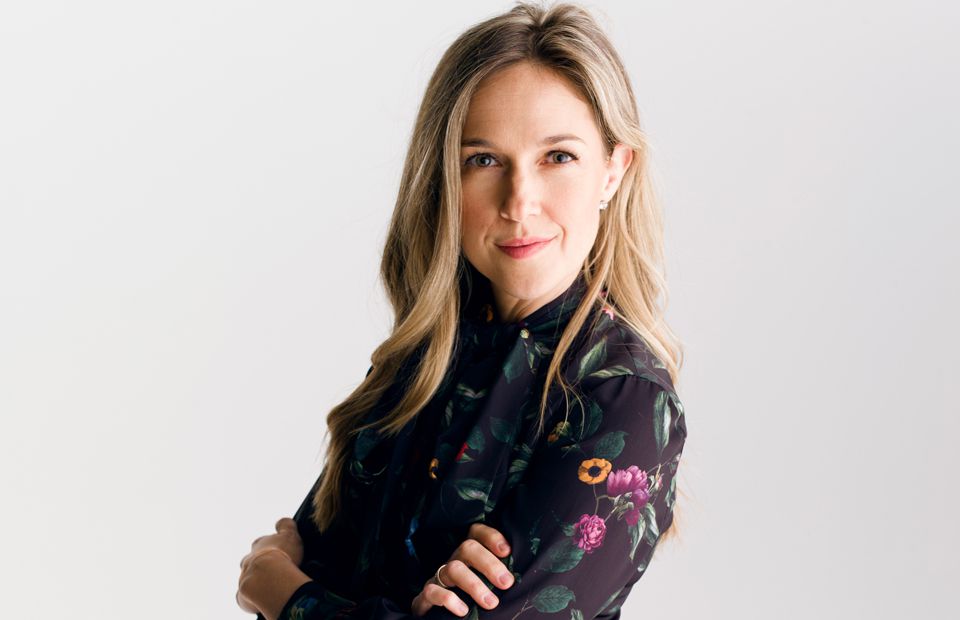
Consumer Services, Technology
Here's How a Female V.P. at a Tech Startup Faces the Gender Gap
Nikki Pechet on writing your own maternity leave policy and taking a job for joy, not money.
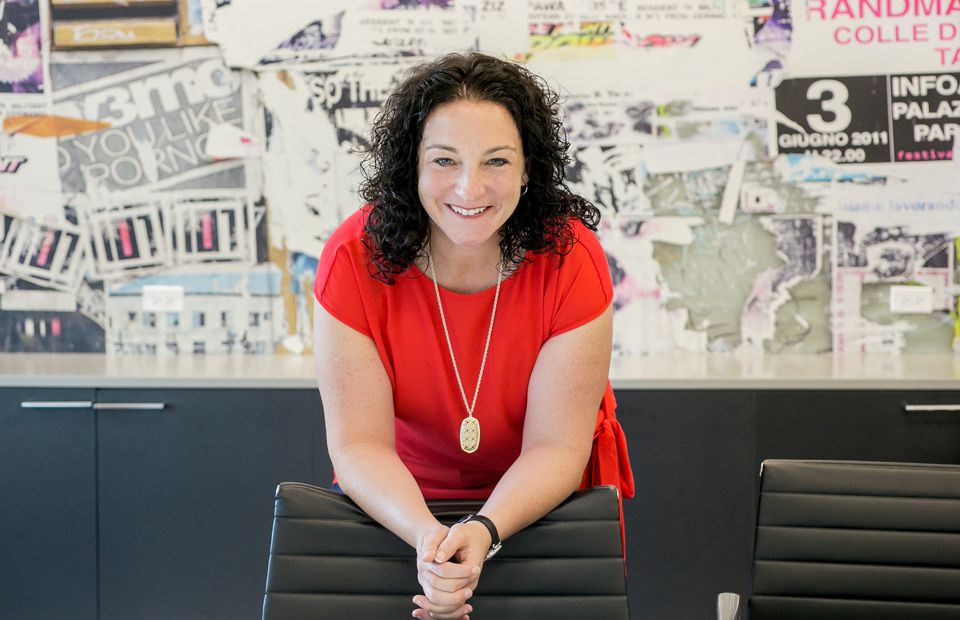
Consumer Goods, Technology
A Sales V.P. on What It's Like to Work at Pandora
Casey Forbes is living an audiophile's dream career.
Get the Best Career Advice Delivered To Your Inbox
Join our newsletter to stay in the loop.
